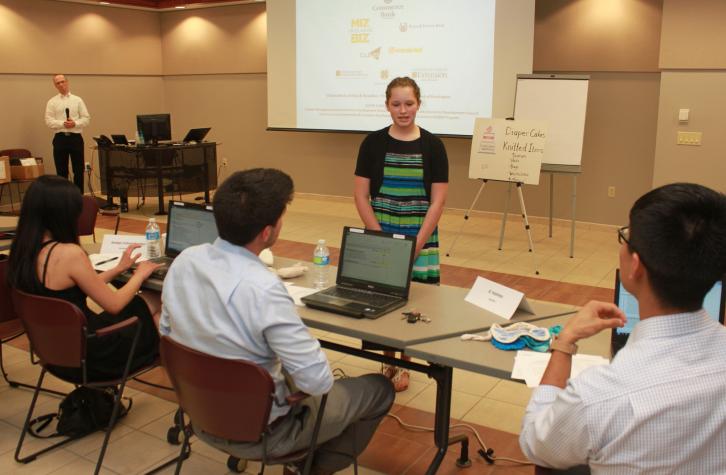COLUMBIA, Mo. — Employment patterns over the past decade are prompting many enterprising youths to explore business ownership as an avenue for income.
Fourteen-year-old Jefferson City native Rebekah Kempker typifies the trend. The high school freshman and longtime 4-H’er started a craft manufacturing, marketing and merchandising business a couple years ago.
Kempker readily admits she had only a vague idea of what she was doing when she started her business.
“I just started out because I had a bunch of friends that had their own businesses on the side,” explains Kempker. “I realized they were earning their own money and I thought I could do it too.”
With a talent for knitting and crocheting that she discovered through 4-H activities, and with support from her parents, the young entrepreneur started CutieCakes and Knitworks from her home.
However, she soon learned that leaping into business without proper research or a solid plan made for a shaky proposition. Kempker confesses she didn’t consider all the things that go into making a successful business.
To overcome Rebekah’s business shortcomings, Kristie Kempker encouraged her daughter to enroll in a summer program for teen entrepreneurs. University of Missouri Extension’s 4-H youth development program offered the weeklong Build-A-Business camp in July on the MU campus.
BAB sessions helped Rebekah and her fellow young entrepreneurs explore market research, customer relations, direct and indirect competitors, projecting business expenses, and calculating profitable pricing strategies. Camp participants learned to identify their circle of supporters, including family members, teachers and local veteran business owners.
“Rebekah is a great example of the young entrepreneur who has furthered her venture through Build-A-Business camp,” says Steve Henness, state 4-H youth specialist and camp organizer. “She has made connections, taken steps to grow her network and put herself in front of people who can help her succeed.”
Those mentors can become a huge part of the young business owner’s success, says Henness.
“Every Missouri business success story revolves around a person—the entrepreneur,” notes Henness. “By supporting up-and-coming entrepreneurs, MU Extension is aiming to address youth unemployment and help communities discover new talent to grow jobs and boost local economies.”
Colin Bunch, one of the camp instructors, says many of the Build-A-Business campers displayed enthusiasm for their work and a tendency toward self-reliance.
“I saw a lot of kids who were really passionate about something, who were willing to take advice and learn and keep moving,” says Bunch, an MU Extension business development specialist who has counseled hundreds of business owners during his career.
“They’re moldable, coachable. I think that’s the biggest thing if you want to identify success in entrepreneurship. Being able to take advice and run with it.”
For more information about MU Extension’s 4-H Center for Youth Development, go to http://4h.missouri.edu or contact your local MU Extension center.
